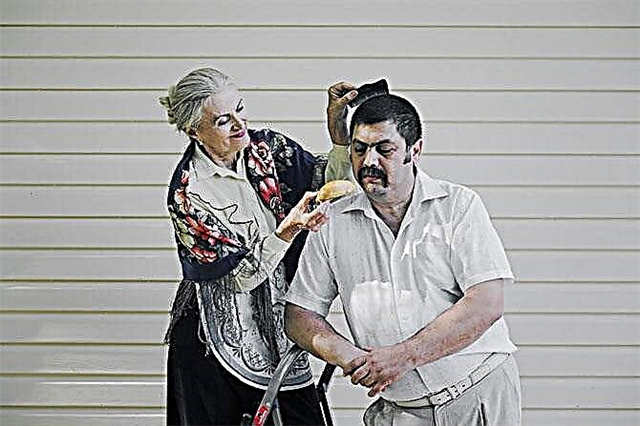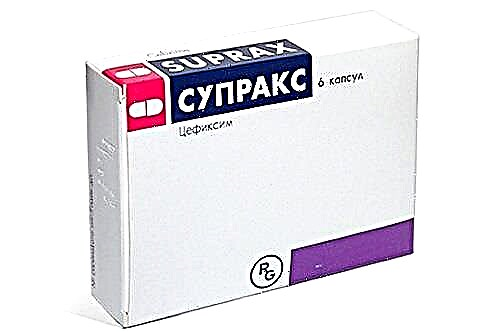The baby was born. A happy mom has a time of worries, worries and worries. The main thing that worries a breastfeeding mother now is whether the baby is getting enough nutrition, is her milk fat or not so much?

Breastfed
First feeding
Postpartum milk usually begins to arrive by the fourth day. The baby is brought for the first feeding, most often on the second day. And now a young mother begins to worry that her baby will remain hungry, that there is very little milk. You shouldn't do this for several reasons:
- The newborn is still weakly sucking on her mother's breast (the sucking reflex is poorly developed), he needs to learn this, so he eats very little.
- Colostrum, which is now produced by the mother's body, is fatty and nutritious. It contains everything necessary to ensure the full functioning of the newborn.
- The volume of the ventricle in the baby is still very small (on the first day, only about 10 ml), therefore the amount of colostrum eaten in one feeding is also small, about 7 - 9 ml.
- It turns out to feed a child 10 - 12 per day, that is, for the first day, the baby's norm is about 100 ml of milk.
- Do not think that a nursing baby will remain hungry because there is not enough milk. It will start arriving soon. But unnecessary anxiety can delay the increase in lactation.
Milk rates in the first ten days
How much milk a baby will eat now depends only on his weight and age. From day to day, the volume of the newborn's ventricle increases, and the volume of milk consumed increases accordingly.
- On the second day, the baby drinks about 20 grams in one feeding, the daily dose is 200-240 ml,
- For the third, 30 ml (300-340 ml, respectively) and so on.
- For a child of the first 10 days of life, you can calculate the required amount of milk consumption for 1 feeding, simply by multiplying the number of days old by 10.
Formula of nutritional norms for the first 10 days: N (number of days) * 10 = one-time meal in ml.

More precisely, the volume of a single dose of milk consumed can be determined by weighing the infant on a medical scale before and immediately after feeding. The difference between the weighing results is the amount of milk drunk with a crumb.It is advisable to weigh several feedings in a row. Knowing the approximate dose (see above norms), you will understand whether the baby is sucking his portion or not.
When and how best to feed your baby?
In ten days, Mom's milk will stop arriving. Now the approximate amount eaten per day will be equal to a fifth of the baby's weight.
Children's pediatricians have come to the conclusion that it is not necessary to force-feed a child at strictly allotted hours. It is better to wait until the baby himself demands to feed him. This usually happens 10-12 times a day with an interval of 1.5-2 hours.
As a rule, the baby actively suckles for 15-30 minutes, sometimes all 40. It happens that the baby has sucked all the milk, but continues to suckle for some time, either sucking the last drops of milk, or he just likes the sucking process itself. Don't let him suckle for more than an hour.
Nutrition rate table up to a year
| Child's age | The amount of milk eaten per feeding, ml | The amount of milk eaten per day |
| 3-4 days | 20-60 | 200-300 ml |
| Week 1 | 50-80 | 400 ml |
| 2 weeks | 60-90 | 20% of the child's weight |
| 1 month | 100-110 | 600 ml |
| 2 months | 120-150 | 800 ml |
| 3 months | 150-180 | 1/6 of the child's weight |
| 4 months | 180-210 | 1/6 of the child's weight |
| 5-6 months | 210-240 | 1/7 of the child's weight (800-1000 ml) |
| 7-12 months | 210-240 | 1 / 8-1 / 9 baby weight |
On artificial nutrition
Everything that has already been said above relates to breastfeeding. What if your child is receiving artificial nutrition? How to calculate the required rate of milk or formula?
- The diet is important here. It is necessary to feed the baby at least 8 times a day.
- We calculate the rates, as for breastfeeding, but if the baby eats less often, then the rate can be slightly increased.
- The main thing is not to overfeed the child. After all, it is easier to suck milk from the nipple, and the sucking reflex of the baby is already highly developed a few days after birth.
- If you are feeding your baby not with milk, but with milk formula, then it is even easier - the dose required for each age is indicated on the package (See the article on formula and how to choose a formula for a newborn).
How to calculate the daily allowance for artificial feeding?
Let's see how to calculate the required amount of food per day for an artificial child up to a year? This table will help with this.
| Age | |
| From 10 days to 1.5 months | 1/5 of the baby's weight |
| From 1.5 months up to 4 months | 1 / 6th of the baby's weight |
| From 4 to half a year | 1 / 7th of the baby's weight |
| From six months to 8 months | 1/8 of the baby's weight |
| From 8 months to a year | 1/9 of the baby's weight |
For instance: Let's use the table. The child is 2 months old, weight - 4800 gr. Daily amount of milk: 4800/6 = 800 ml. Dividing by the number of feedings per day, we get a single dose: 800/6 = 130 ml. So, in one feeding, the baby should eat 130 grams of milk / formula.
Features of nutrition with artificial feeding
- Do not worry if the baby has eaten less than the prescribed norm - in the next feeding, he can eat a little more and get the required amount.
- You should be aware that the ventricle of a bottle-fed baby is slower to digest food, be it milk or formula. Therefore, during the daytime you should feed in 2.5 - 3 hours, the night feeding break can be 5 - 6 hours.
- If the baby wakes up some time after feeding and cries, it is not worth feeding him any more. Most likely, he did not belch air, and his tummy hurts. Hold it upright. As soon as he regurgitates air, let him fall asleep again.
- If he didn’t drink the whole amount, it’s better to let it finish a little later, when you know for sure that he is hungry.
How can you tell if your baby is full?
An attentive mother will determine by many signs that the baby is eating:
- He is calm;
- Sleeps soundly;
- Gains well weight (See article on weight gain);
- Pees regularly (12-15 times a day) and poops regularly (See article how many times a newborn poops per day).
When a baby just cries often, it is not an indicator of underfeeding. Most likely, he is simply tormented by gas and colic.
If your child is restless, does not sleep well, often wakes up, the weight gain is small compared to the norm, greedily pounces on the chest (or a bottle of formula), then the baby is clearly experiencing some kind of nutritional problems and it is advisable to consult a doctor.
There are many tips for breastfeeding, but you shouldn't blindly follow them. Remember that everything is very individual. Be attentive and patient, and soon your baby will have his own, convenient for him, diet.
It should be remembered that for any, be it breastfeeding or artificial feeding, it is imperative to water the baby with warm boiled water (See article whether to give water to a newborn).
Once the feeding regimen is normal, you don't have to worry about how much your baby ate. He himself will eat as much as he needs.



